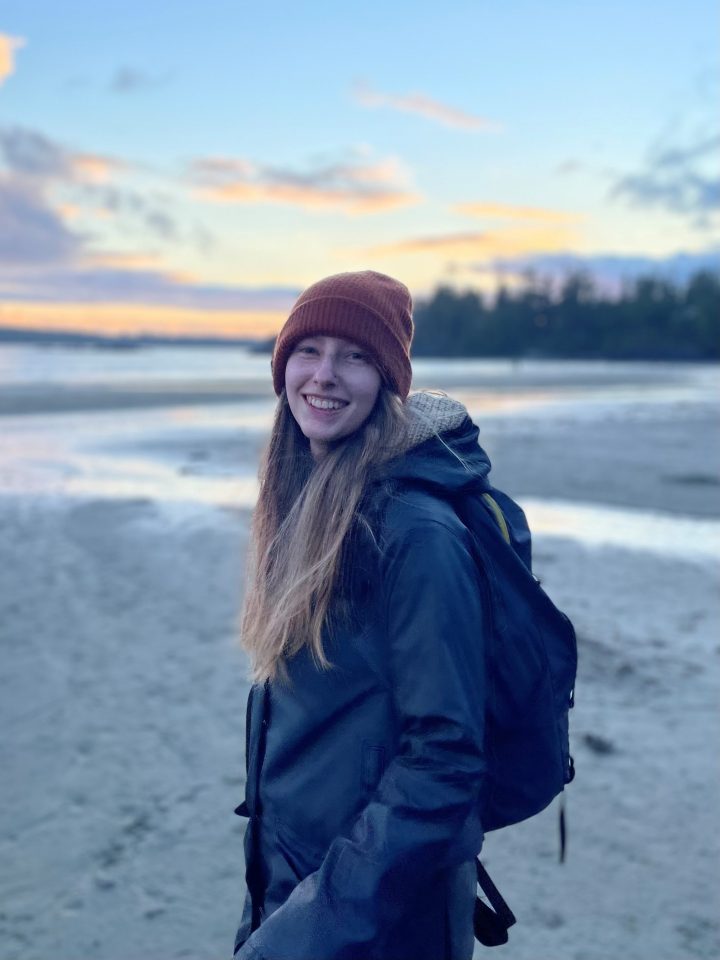1. Aquatic ecosystem metabolism as a control of carbon transport in managed forests
2. Vocal Opponents and Silent Supporters: How Saskatchewan Politicians Framed the Carbon Tax on Twitter
Time: 12:30pm to 1:20pm
Location: Michael Smith Labs Theatre (Room 102, 2185 East Mall)
No food or drinks allowed in the Theatre.
Click here to register for Zoom link. Zoom will be terminated if we encounter tech problems 5 to 10 mins into the seminar.
This seminar will not be recorded.
Talk summary:
As the majority of Canada obtains its drinking water from forested watersheds, forest management to better manage the effects of land use changes related to industries such as logging and urban development are of high public interest. To understand impacts on aquatic ecosystems from land use change it is essential to understand how carbon is cycled, transported, and stored throughout the ecosystem. Aquatic ecosystem metabolism (AEM), a key component of carbon cycling, can be evaluated by determining gross primary productivity (GPP) and respiration (R) within the water column of streams, rivers, lakes, and wetlands. AEM controls energy and material flow through aquatic ecosystems therefore linking environmental change and food webs to provide a useful framework for examining ecosystem function and productivity. The objective of this research is to investigate the role of AEM as a control on carbon transport, turnover, and fate in forested ecosystems under varying land use and streamflow conditions. I used sensors to measure dissolved oxygen to determine AEM on a continuous basis for a single stream. The study was conducted in the University of British Columbia (UBC) Malcolm Knapp Research Forest (MKRF) located approximately 50 km east of Vancouver, BC containing forested and harvested catchments.

Bio:
Trisa is a MSc student in IRES supervised by Dr. Mark Johnson. She is part of the UBC Ecohydrology Lab where her research focuses on the impacts of land-use changes to water quality and aquatic metabolism in the UBC Malcolm Knapp Research Forest. Her broader research interests include water security, watershed science, and resource management. Currently, Trisa lives and works as an environmental scientist in Yellowknife, Northwest Territories where she was born and raised; as a result, she is also interested in northern research topics that contribute to improving and increasing the state of knowledge in the North.
Talk summary:
As of 2020, Saskatchewan leads the country in highest per capita GHG emissions. It was also the only province to have immediately and unremittingly rejected the Pan-Canadian Framework on Clean Growth and Climate Change which hinged on a national plan for pricing carbon. Despite widespread advocation for carbon pricing from economists and evidence of success in other jurisdictions, there is strong opposition to the federal carbon tax in Saskatchewan among the general public and the governing Saskatchewan Party. One means for Saskatchewan politicians to share their views on the matter is via Twitter (recently renamed X) – a platform they may use to speak directly to voters. In this study I explore how Saskatchewan politicians, at both the federal and provincial levels, have used Twitter as a tool to discuss and frame the federal carbon tax. This presentation highlights the tweet content analysis that was performed and the results of this study that find, due to the silence of alleged supporters, there was almost no defense of the carbon tax from Saskatchewan’s own elected officials on Twitter.

Bio:
Grace Schaan is a MA student in the Institute for Resources, Environment and Sustainability and is supervised by Dr. Kathryn Harrison. Grace is interested in researching policy for climate change and explores in her master’s thesis how politicians frame the federal carbon tax. She is also researching the impacts of BC’s provincial legislation on climate action at universities as a Sustainability Scholar with the Pacific Institute for Climate Solutions and the UBC Sustainability Hub.
Grace completed a Bachelor of Arts in Environmental Studies at the University of Regina in 2020. Prior to joining IRES, she worked for Agriculture and Agri-Food Canada in the National Agroclimate Information Service. In her free time, she enjoys hiking, camping, and listening to live music.